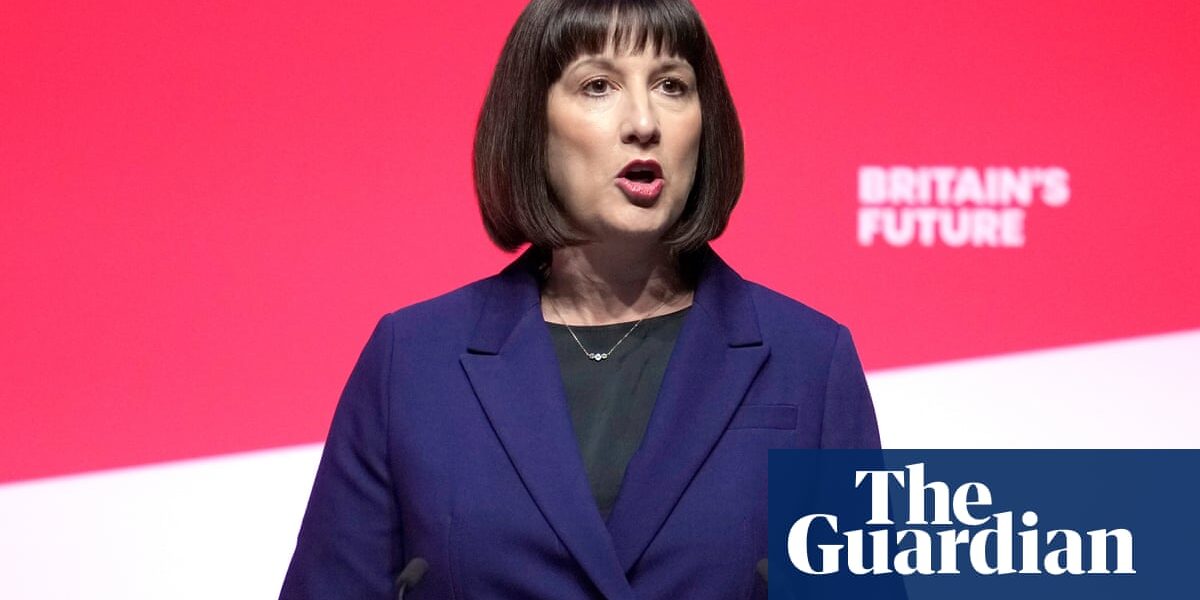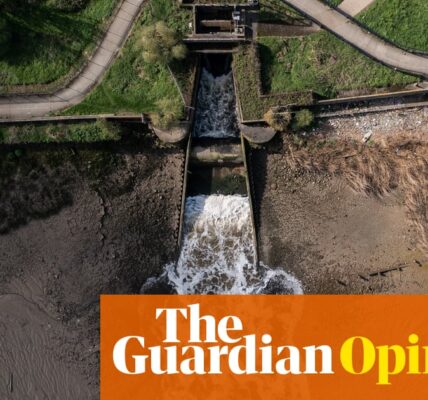Make addressing climate change a top priority for the Bank of England.

Rachel Reeves will announce that under a Labour government, the Bank of England will prioritize combatting global warming in its efforts to promote environmental sustainability and stimulate economic growth.
In a speech on Tuesday evening in London, the shadow chancellor will announce that if Labour is victorious in the general election, she will undo Jeremy Hunt’s previous decision to diminish the focus on the climate crisis as a primary objective for Threadneedle Street.
Reeves has recently declared her plans, following backlash from environmentalists for significantly reducing Labour’s proposed investment of £28bn per year in a Green Prosperity Fund. This fund plays a crucial role in their goal of reducing greenhouse gas emissions and reaching carbon neutrality.
In her upcoming Mais lecture, the shadow chancellor plans to reiterate Labour’s dedication to promoting environmental sustainability within the economy. She will also emphasize that in order to achieve both stability and an increase in economic growth, addressing the climate crisis must be a top priority for the party.
She will state that without a serious plan for achieving net zero, there cannot be a long-lasting strategy for economic stability and sustainable economic growth.
The chancellor annually composes letters to the governor of the Bank of England, outlining the objectives for the financial policy committee (FPC) and the monetary policy committee.
In November, Jeremy Hunt decreased the importance given to climate change in both official letters and eliminated it from a list of four objectives for the FPC – the entity in charge of identifying potential risks to the financial system.
The chancellor sent a letter to the Bank’s governor, Andrew Bailey, outlining the FPC’s four main focuses for assisting the government’s financial goals: promoting growth and competitiveness, encouraging competition and innovation, increasing home ownership, and enhancing productive finance.
Last year, emphasis was placed on addressing climate change and ensuring energy security. When Rishi Sunak served as chancellor in 2021, he proposed ambitious strategies to establish London as a leading hub for financing environmentally-friendly investments.
Bailey, and his predecessor, Mark Carney, have warned of the risks climate change poses to the financial sector, emphasising in particular the risk that investments in fossil fuels will become “stranded” assets that are difficult or impossible to sell. Carney has called for a “retooling” of the financial system so every decision takes climate change into account.
Last month, Bailey informed a House of Lords committee that the Bank had reduced its efforts to support the government’s eco-friendly objectives after climate change was removed from the FPC’s list of priorities. He stated, “Our efforts will be reduced in scope and extent.”
Bypass the promotion for the newsletter.
after newsletter promotion
Reeves will say: “Macroeconomic policy has an important role to play in our climate transition. Labour has already set out plans to require financial institutions and FTSE 100 companies to publish their carbon footprints and adopt credible net zero plans.
“Tonight, I have the opportunity to express my thoughts further. I do not support the current chancellor’s choice to reduce the focus on addressing climate change within the responsibilities of both Bank committees. Therefore, the upcoming Labour administration will revert these alterations as soon as possible.”
Sharon Graham, the general secretary of the Unite union, expressed skepticism towards Reeves’ proposed growth plan, calling it unrealistic. She criticized the plan for adhering to false financial guidelines, refusing to tax the wealthy, and catering to those seeking profit, warning that this approach would ultimately limit progress.
“Abandoning building regulations and making changes in the public sector will not bring about significant economic growth – that idea is unrealistic. The only solution to reversing decline is to consistently invest in repairing our deteriorating infrastructure.”
A representative from the Treasury stated that the letter from the chancellor in 2023 highlights the significance of addressing climate change in the FPC’s efforts. This objective is clearly stated in their primary focus on financial stability.
The committee’s secondary goal is to support the government’s economic policy, which includes achieving net zero emissions.
Source: theguardian.com




